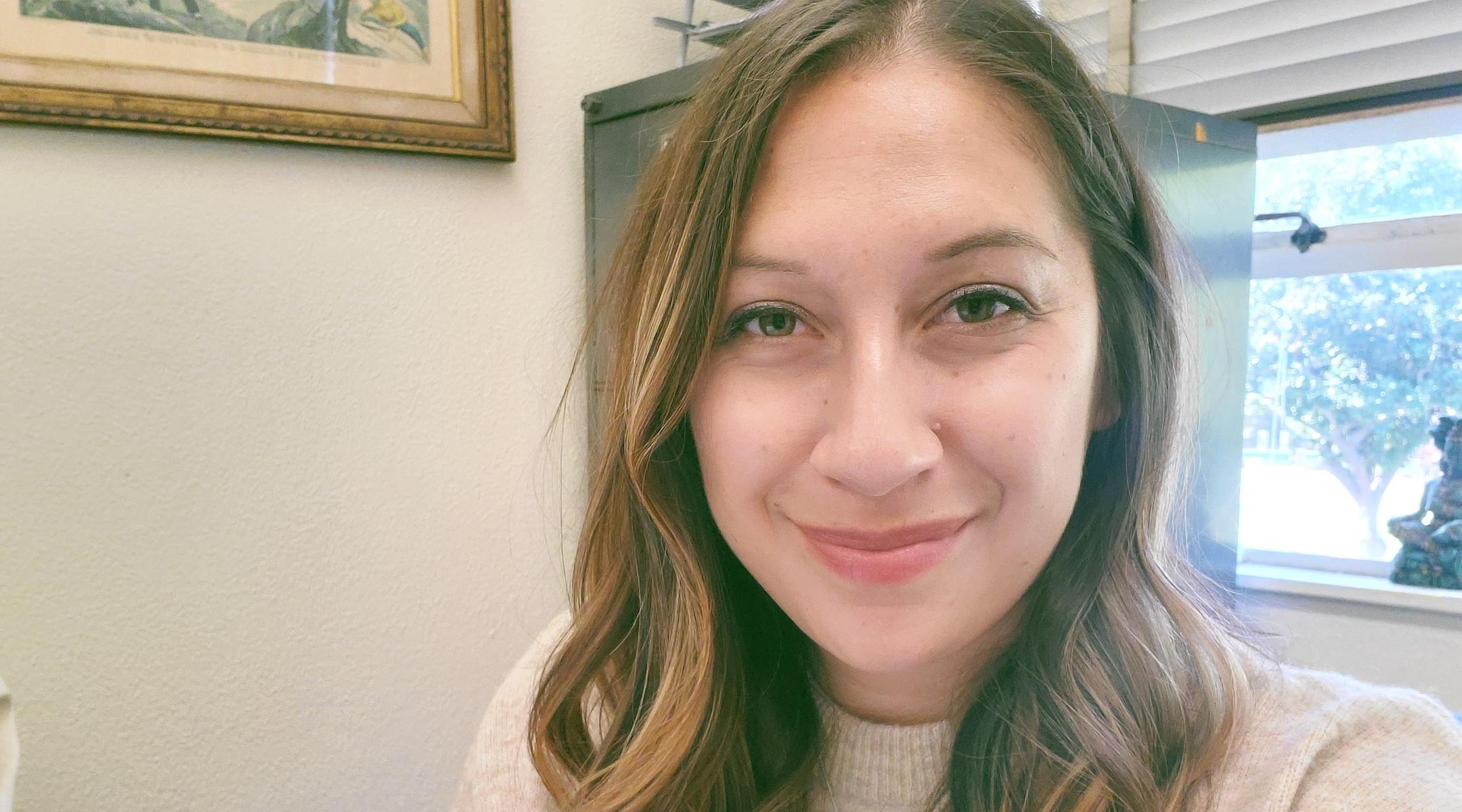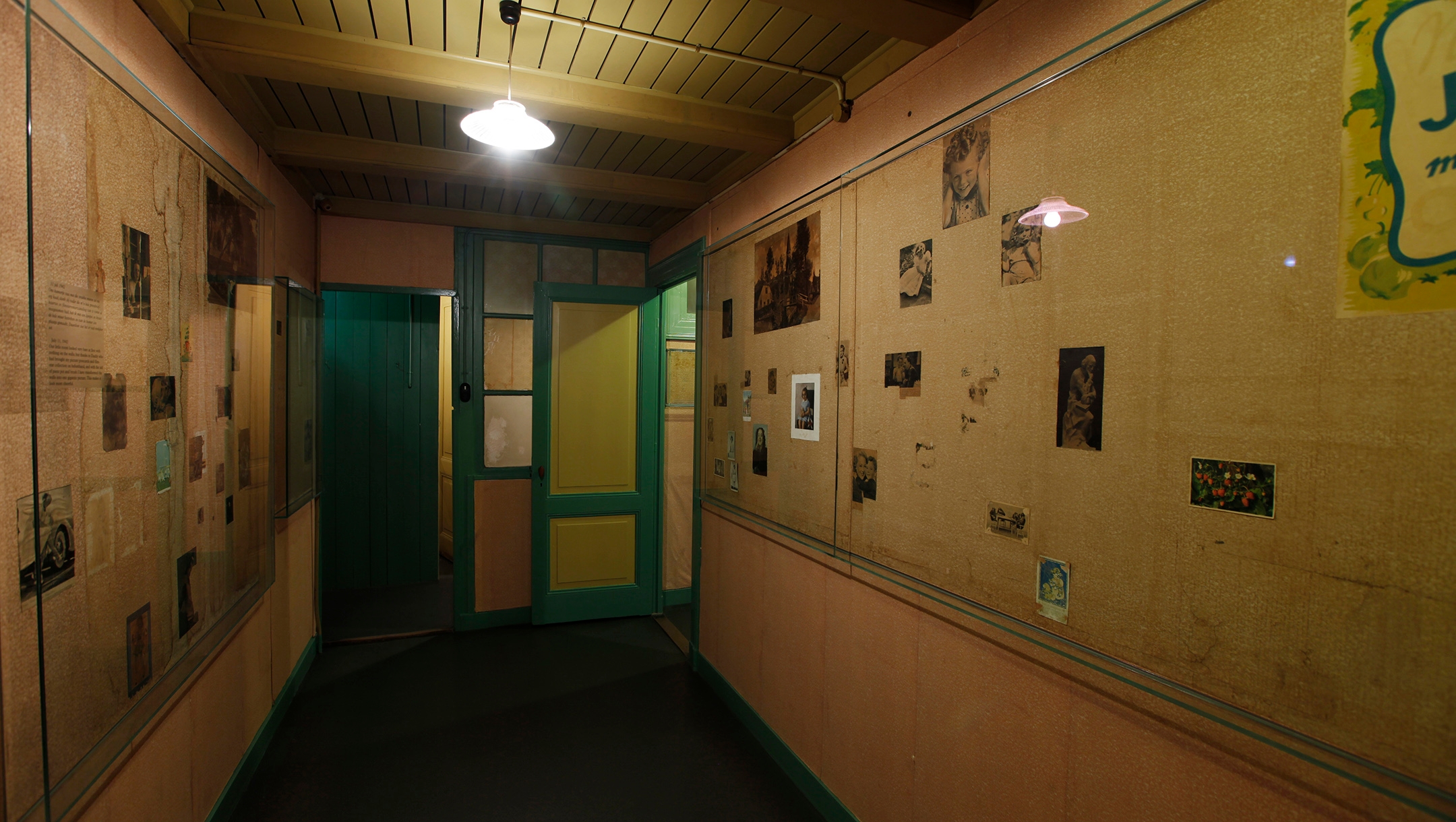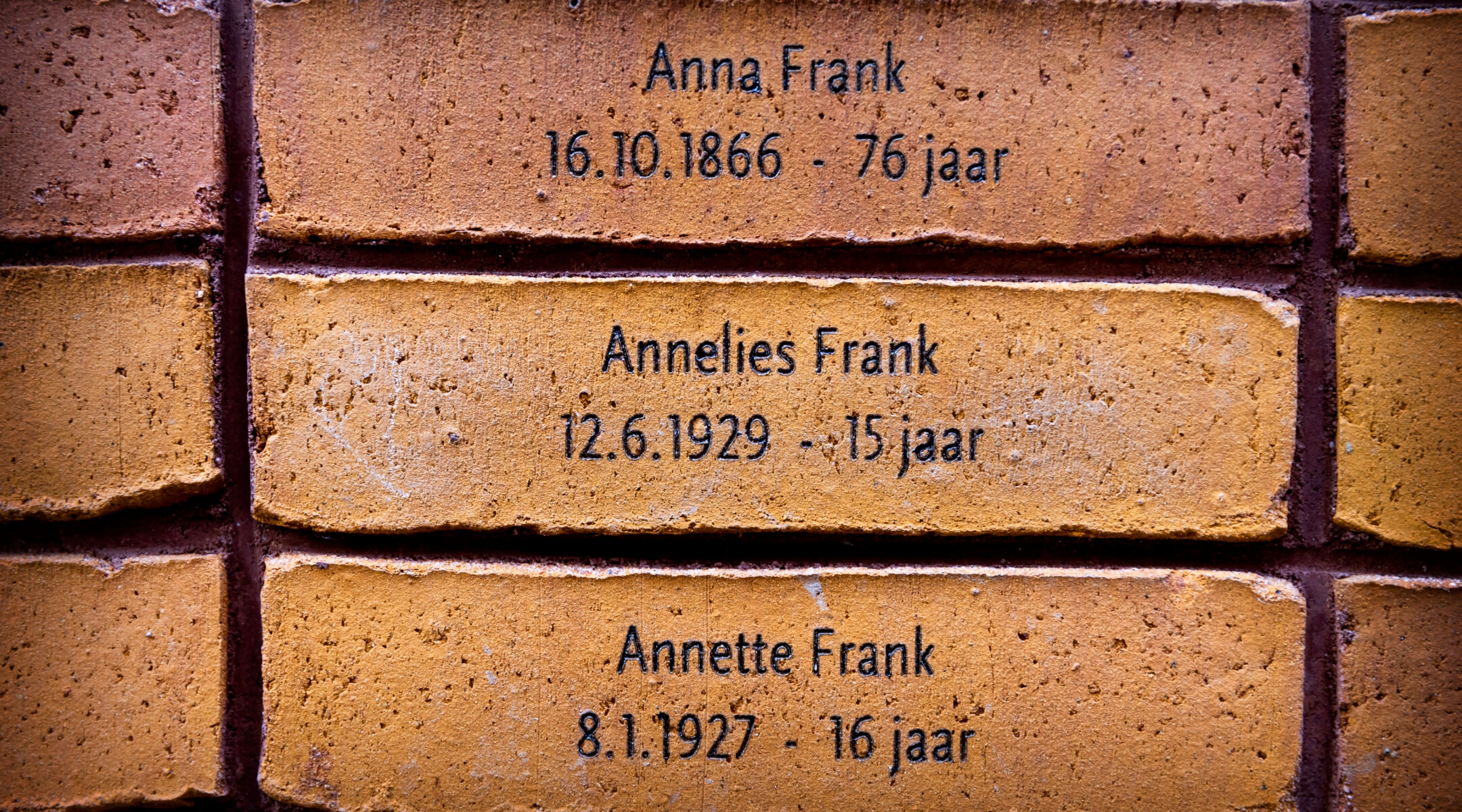(JTA) — You’d think that in a country so closely identified with Anne Frank — perhaps the Holocaust’s best-known victim — cultivating memory of the genocide wouldn’t be a steep challenge.
That’s why a recent survey, suggesting what the authors called a “disturbing” lack of knowledge in the Netherlands about the Holocaust, set off alarm bells. “Survey shows lack of Holocaust awareness in the Netherlands,” wrote the Associated Press. “In the Netherlands, a majority do not know the Holocaust affected their country,” was the JTA headline. “The Holocaust is a myth, a quarter of Dutch younger generation agree,” per the Jerusalem Post.
“Survey after survey, we continue to witness a decline in Holocaust knowledge and awareness. Equally disturbing is the trend towards Holocaust denial and distortion,” Gideon Taylor, the president of the Conference of Jewish Material Claims Against Germany, which conducted the study, said in a statement.
Like other recent studies by Claims Conference, the latest survey has been challenged by some scholars, who say the sample size is small, or the survey is too blunt a tool for examining what a country’s residents do or don’t know about their history. Even one of the experts who conducted the survey chose to focus on the positive findings: “I am encouraged by the number of respondents to this survey that believe Holocaust education is important,” Emile Schrijver, the general director of Amsterdam’s Jewish Cultural Quarter, told JTA.
One of the scholars who says the survey doesn’t capture the subtleties of Holocaust education and commemoration in the Netherlands is Jazmine Contreras, an assistant professor of history at Goucher College in Maryland. Contreras studies the historical memory of the Holocaust and Second World War in Holland. In a Twitter thread earlier this week, she agreed with those who say that “the headline that’s being plastered everywhere exaggerates the idea that young people in NL know nothing about the Holocaust.”
At the same time, she notes that while the Netherlands takes Holocaust education and commemoration seriously, it has a long way to go in reckoning with a past that includes collaboration with the Nazis, postwar antisemitism, a small but vocal far right and a sense of national victimhood that often downplays the experience of Jews during the Shoah.
“It’s such a complex issue,” Contreras told me. “There’s no one answer to how the Holocaust is remembered in the Netherlands.”
Today is International Holocaust Remembrance Day, and I took the opportunity to speak with Contreras not only about Dutch memory, but how the Netherlands may serve as an example of how countries deal with Holocaust memory and the national stories they tell.
Our interview was edited for length and clarity.
Jewish Telegraphic Agency: Tell me a little bit about when you saw the survey, and perhaps how it didn’t mesh with what you know about the Netherlands?
Jazmine Contreras: My major problem is that every single outlet is picking up this story and running a headline like, “Youth in the Netherlands don’t even know the Holocaust happened there. They cannot tell you how many people were killed, how many were deported.” And I think that’s really problematic because it paints a really simplistic picture of Holocaust memory and Holocaust education in that country.
There are multiple programs, in Amsterdam, in other cities, in Westerbork, the former transit camp. They have an ongoing program that brings survivors and the second generation to colleges, to middle schools and primary schools all across the country. And they also have in Amsterdam a program called Oorlog in Mijn Buurt, “War in My Neighborhood,” and basically young people become the “memory bearers” — that’s the kind of language they use — and interview people who grew up and experience the war in their neighborhood, and then speak as if they were the person who experienced it, in the first person.
You also have events around the May 4 commemoration remembering the Dutch who died in war and in peacekeeping operations, and a program called Open Jewish Houses [when owners of formerly Jewish property open their homes to strangers to talk about the Jews who used to live there]. It’s really amazing: I’ve actually been able to visit these formerly Jewish homes and hear the stories. And, of course, the Anne Frank House has its own slew of programming, and teachers talk a lot about the Holocaust and take students to synagogues in places like Groningen, where they have a brand new exhibit at the synagogue. They are taking thousands at this point. The new National Holocaust Names Memorial is in the center of Amsterdam.
I think, again, this idea that children are growing up without having exposure to Holocaust memory, or knowledge of what happened in the Netherlands, is a bit skewed. I think we get into a dangerous area if we’re painting the country with a broad brush and saying nobody knows anything about the Holocaust.
Have you anecdotal evidence or seen studies of Dutch kids about whether they’re getting the education they need?
Anecdotally, yes. I was invited to attend a children’s commemoration that they do at the Hollandsche Schouwburg theater in Amsterdam, which is the former Dutch theater that was used as a major deportation site. And it’s children who put on a commemoration themselves. Again, not every child is participating in this, but if they’re not participating in the children’s commemoration, then they’re doing the “War in My Neighborhood” program, or they’re doing Open Jewish Houses, or they’re taking field trips. That’s pretty impressive to me, and it’s pretty meaningful. They want to help participate in it in the future. They want to come back because it leaves a lasting impression for them.
Let’s back up a bit. Anne Frank dominates everyone’s thinking about Holland and the Holocaust. And I guess the story that’s told is that she was protected by her neighbors until, of course, the Nazis proved too powerful, found her and sent her away. What’s right and what’s wrong about that narrative?
Don’t forget that Anne Frank was a German Jewish refugee who came to the Netherlands. And I think that part of the story is also really interesting and left out. She’s this Dutch icon, but she was a German Jewish refugee who came to the Netherlands, and the Dutch Jewish community was single-handedly responsible for funding, at Westerbork, what was first a refugee center. I think that’s really complicated because now we also have a discourse about present-day refugees and the Holocaust.

Jazmine Contreras, an assistant professor of history at Goucher College, specializes in Dutch Holocaust memory. (Courtesy)
I’ve also never quite understood the insistence on making her an icon when the end of the story is that she’s informed on and dies in a concentration camp. The idea that the Franks were hidden here fits really well into this idea of Dutch resistance and tolerance, and her diary often gets misquoted to kind of represent her as someone who had hope despite the fact that she was being persecuted. In the 1950s, her narrative gets adopted into the U.S., and we treat it as this globalizing human rights discourse.
We don’t talk about the fact that she’s found because she’s informed upon, and we don’t talk about the fact that you had non-Jewish civilians who were informers for a multitude of reasons, including ideological collaboration and their own financial gain.
And when it was talked about most recently, it was about a discredited book that named her betrayer as a Jew.
That was a huge controversy.
I get the sense from your writing that the story the Dutch tell about World War II is very incomplete, and that they haven’t fully reckoned with their collaboration under Nazi occupation even as they emphasize their own victimhood.
On the national state level, they have officially acknowledged not only the extensive collaboration, but the failure of both the government and the Crown to speak out on behalf of Dutch Jews. [In 2020, Prime Minister Mark Rutte formally apologized for how his kingdom’s wartime government failed its Jews, a first by a sitting prime minister.] Now, the question is, what’s happening in broader Dutch society?
Unfortunately, there was an increase in voting for the Dutch far right, although they’ve never managed to get a majority or even come close to it.
Something else that’s happening is that many ask, “Why should Dutch Jews get separate consideration after the Second World War, a separate victimhood, when we were all victimized?” The Netherlands is unique because it’s occupied for the entirety of the Second World War — 1940 to 1945. There is the civil service collaborating, right, but there’s no occupation government. So it’s not like Belgium. It’s not like France, not like Denmark. And there was the Hunger Winter of 1944-45 when 20,000 civilians perished due to famine. You have real victimhood, so people ask, “Why are the Jews so special? We all suffered.”
And at the same time, scholarship keeps emerging about the particular ways non-Jewish Dutch companies and individuals cooperated with the Nazis.
The NIOD Institute for War, Holocaust and Genocide Studies in Amsterdam, which has done so much of this research, found that Jews who were deported had to pay utility bills for when they weren’t living there. You have a huge controversy around the the Dutch railway [which said it would compensate hundreds of Holocaust victims for its role in shipping Jews to death camps]. The Dutch Red Cross apologized [in 2017 for failing to act to protect Jews during World War II], following the publication of a research paper on its inaction. A couple of decades ago, the government basically auctioned off paintings, jewelry and other Jewish possessions, and in 2020 they started the effort to give back pieces of art that were in Dutch museums. Dienke Hondius wrote a book on the cold reception given to survivors upon their return. Remco Ensel and Evelien Gans also wrote a book on postwar Jewish antisemitism.
So a lot has been happening, a lot of controversies, and, thanks to all of this research, a lot happening in order to rectify the situation.
It sounds like a mixed story, of resistance and collaboration, and of rewriting the past but also coming to terms with it.
There’s a really complex history here of both wanting to present it as “everybody’s a victim” and that the resistance was huge. In fact, the data shows 5% of the people were involved in resistance and 5% were collaborators. So it’s not like this wholesale collaboration or resistance was happening. It was only in 1943, when non-Jewish men were called up for labor service in Germany, that they got really good at hiding people and by then it was too late.
Right. My colleagues at JTA often note that the Nazis killed or deported more Dutch Jews per capita than anywhere in occupied Western Europe — of about 110,000 Jews deported, only a few thousand survived.
Yes, the highest percentage of deportation in Western Europe.

A room at the Anne Frank House museum where she and her family hid for two years during the Holocaust in Amsterdam, the Netherlands. (Photo Collection Anne Frank House)
Since this week is International Holocaust Remembrance Day, let me ask what Holland gets right and wrong compared to maybe some other European countries with either similar experiences or comparable experiences.
The framing of that question is difficult because there’s so many unique points about the Holocaust and the occupation in the Netherlands. Again, it was occupied for the entirety of 1940-45. You have a civil service that was willing to sign Aryan declarations. The queen, as head of a government in exile in London, is basically saying, “Do what you need to just to survive.”
One of the big problems is there are people like Geert Wilders [a contemporary right-wing Dutch lawmaker] who practice this kind of philo-Semitism and support of Israel, but it’s really about blaming the Muslim population for antisemitism and saying none of it is homegrown. They don’t have to talk about the fact that there was widespread antisemitism in the aftermath of the Holocaust.
In the Netherlands they’re not instituting laws around what you can and can’t say about the Holocaust like in Poland [where criticizing Polish collaboration has been criminalized]. There are so many amazing educational initiatives and nonprofit organizations that are doing the work. And even these public controversies ended up being outlets for the production of Holocaust memory when survivors, but mostly now the second and third generations, use that space to talk about their own family Holocaust history.
Tell me about your personal stake in this: How did the Holocaust become a subject of study for you?
I specialize in Dutch Holocaust memory. I’m not Jewish, but my grandparents on my mother’s side are Dutch. For my first project I looked at relationships between German soldiers and Dutch women during the war during the occupation, and I eventually kind of made my way into the post war, when these children of former collaborators were still very marginalized in Dutch society. It ties into this. I do interviews with members of the Jewish community, children of resistance members and children of collaborators and how these memory politics play out.
What is the utility of events like International Holocaust Remembrance Day and the major Holocaust memorials in educating the public about the Holocaust and World War II?
International Holocaust Remembrance Day and May 4 result in the production of new memories about the Holocaust and the Second World War. I was at the 2020 International Holocaust Remembrance Day commemoration when the prime minister formally apologized. It was a really big moment, and it allowed the Jewish community, and the Roma and Sinti community, a space to remember and to share in that and to speak to it as survivors and the second and third generation.
Unlike the United States, the Netherlands is a small, insular country, so the relationship between the public and the media and academics is so close. So in the weeks before and the weeks after these memorials, academics, politicians and experts are publishing pieces about memory. That’s useful to the production of new memories and information about the Holocaust.
But what about the other days of the year? Will putting a monument in the center of Amsterdam actually change how people understand the Holocaust? That is a question that I think is harder to answer. The new monument features individual names of 102,000 Jews and Roma and Sinti and visually gives you the scope of what the Holocaust looked like in the Netherlands. But does that matter if somebody lives outside of Amsterdam and they’re never going to see this monument?
JTA has documented Jewish history in real-time for over a century. Keep our journalism strong by joining us in supporting independent, award-winning reporting.







